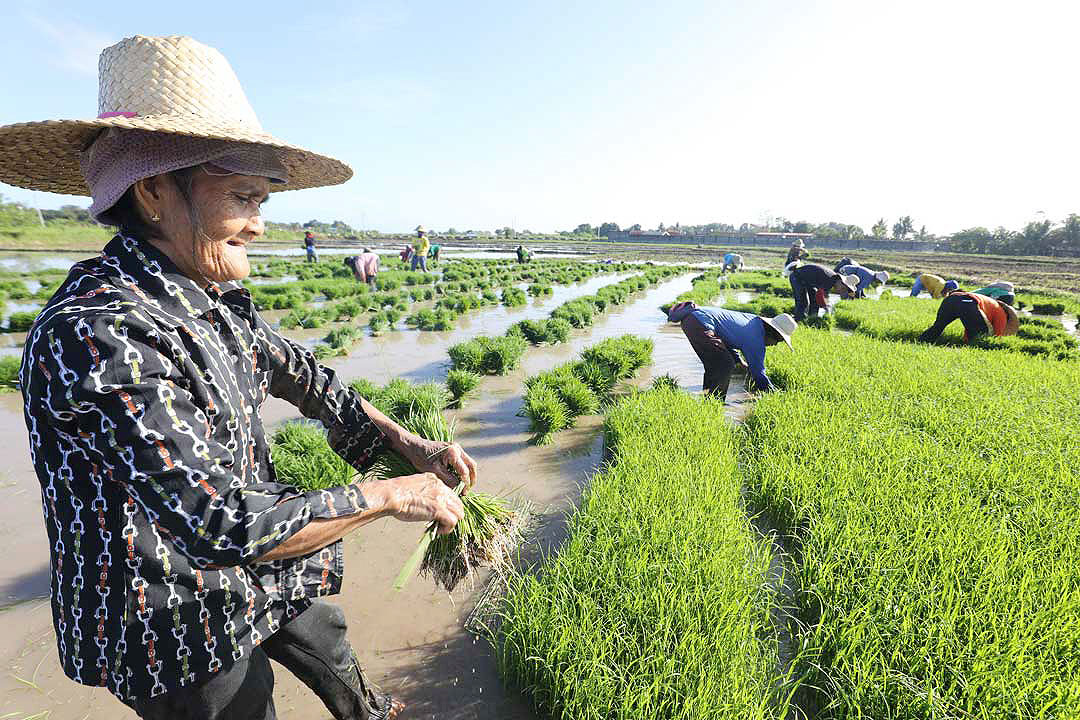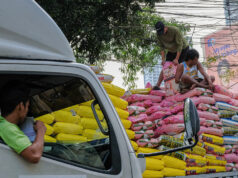Agri output boost seen as defense against inflation, supply chain chaos

By Luisa Maria Jacinta C. Jocson, Reporter
THE agriculture industry must take up a bigger share of supplying the Philippine food requirement in order to contain inflation and blunt the impact of global supply chain disruptions, analysts said.
“We must move quickly to shore up our domestic agricultural sector as well as ensure a healthy stock of staples and other food. We will need actual quick and effective measures to ensure (that food is sufficient), which in turn should cap inflation pressures,” ING Bank N.V. Manila Senior Economist Nicholas Antonio T. Mapa said in an e-mail.
“Failure to do so could result in the quicker acceleration of inflation, which if not checked could result in civil unrest, as experienced by some other nations this year,” he added.
Mr. Mapa said that supply chains were already tight even before the outbreak of the Russia-Ukraine crisis.
“The loss of Russian and Ukrainian wheat from global markets has heightened concerns about food security and we’ve seen sovereigns resort to export bans to safeguard domestic supply. Wheat, sugar, chicken and even palm oil are just a few of the commodities we’ve seen banned for export to date,” he added.
He said that export bans will help stabilize supply and inflation in countries that implement them; however this may limit global supply and keep supply chains under pressure.
“China’s recent shutdown is not helping either as it adds yet another challenge for already constrained supply chains,” he added.
Federation of Free Farmers National Manager Raul Q. Montemayor said that with countries implementing export bans, the risks of an import-dependent food policy have become apparent.
“Exporting countries themselves are now limiting, if not stopping, the outflow of critical food products. So, we have no recourse but to rely on our own agriculture sector to produce as much food as we want,” he said.
“We still have time. We can produce rice and corn in three to four months, chicken in less than a month, and vegetables in a few weeks. But we have to act fast. And we have to give the proper signals and support to our farmers. We need to help them out with their rising costs for fertilizer, fuel and other production requirements. But we will only discourage them if we continue allowing unlimited imports,” he added.
Philippine Chamber of Agriculture and Food, Inc. President Danilo V. Fausto said that the government must wean itself off imports and step up efforts to ramp up domestic production.
“Providing cheap food for the consumers and fighting inflation through imports is a short-term solution. Producing our own food requirements, although a much longer process, will be more sustainable for our people. We appeal for a level playing field from the government. Doing otherwise, we will be shooting ourselves not in the foot but in the head,” he said.
“The government should provide the right environment and incentives for the private sector to invest, expand their production, value chain and supply chain logistics, not kill them with competition from cheap and subsidized imported products,” he added.
Mr. Fausto said that the supply chain disruptions and food crisis have been expected for some time. “Amid the talk of a cost-of-living crisis and national elections, people have lost sight of a far more serious threat: a global and domestic food shortage. Even before the Russian invasion, the World Food Programme had warned that 2022 would be a terrible year,” he said.
“As it happens, I understand that a brutal heatwave is scorching India, the world’s second-largest wheat producer; China, the largest, has said that, after rains delayed planting, this year’s crop may be its worst ever,” he added.
Mr. Fausto said the next administration must increase the agriculture budget and fairly distribute the funds across all sectors of agriculture.
“We appeal to the government that food production should not be sacrificed when the Department of Budget and Management performs haircuts on future budget allocations,” he said.
He said a first border inspection quarantine facility will be crucial for food safety and deterring the smuggling of farm products.
“We need to protect especially our hog and poultry industry by instituting biosecurity measures and stopping smuggling of agriculture products to (protect) our producers. While hogs are being decimated by African Swine Fever (ASF), we also have to protect and provide solutions to our poultry and fisheries sector, (which provide sources of) protein for people shifting from the consumption of pork,” he added.
His also backed the use of tariff collections to support commodity producers.
“Just like in the Rice Tariffication Law, all revenue derived from tariffs from imported commodities must be utilized to (develop the corresponding domestic industry that is competing with the imports). Most important is support for the corn industry. On a macro level, if we want to solve our problems in hog and poultry, we have to increase the productivity and efficiency of our corn industry,” he said.
“We are now on our own. With the private sector providing 95% of the total investment vis-a-vis the total Philippine agriculture output, we need to further expand and increase our production to feed our people. But how on earth can we do this if our own government is preventing us from doing so?” he added.



